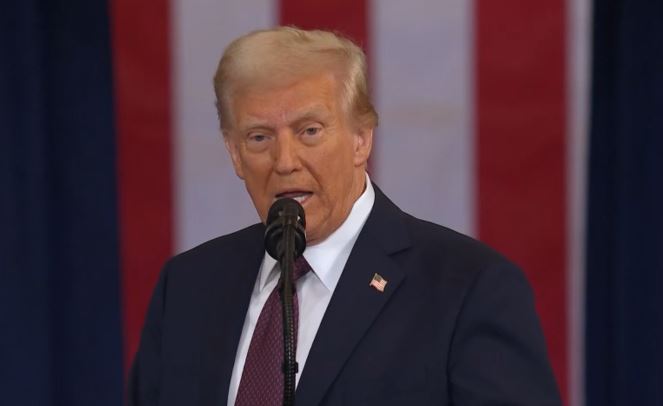According to a Reuters report, President Donald Trump’s administration is preparing to abolish the National Space Council, a key policy body for coordinating the United States’ space agenda, citing inefficiency and lack of utility.
The council’s uncertain fate has stirred controversy as SpaceX, led by CEO Elon Musk, emerges as a dominant force shaping space policy under the new administration.
This move signals a significant shift in how space exploration and governance may evolve in the Trump era, particularly with SpaceX’s growing role in national initiatives.
The council, which was chaired by Kamala Harris, primarily worked on international space policy coordination and fostering collaborations with allies.
The council’s activities have reportedly drawn criticism from Trump’s aides and SpaceX lobbyists, who consider it redundant in the current space ecosystem.
SpaceX’s growing influence in US space policy
SpaceX’s increasing proximity to the White House under Trump is evident in its expanded role in shaping the national space agenda.
With Elon Musk pledging support for ambitious projects such as manned Mars missions and deep-space exploration, SpaceX appears poised to benefit from the dismantling of the council.
The National Space Council, which traditionally serves as a platform for interagency coordination, has been deemed “unnecessary” by SpaceX lobbyists, the report said citing sources.
After Donald Trump’s election victory, his transition team reportedly did not engage with the space council, unlike its outreach to NASA and other agencies for transition plans.
The staff offices of the council near the White House have mostly been vacated, as per the news agency’s report.
Trump’s first administration had revived the space council in 2017 after it was disbanded in 1993.
The council played a key role in initiatives like the establishment of the US Space Force, plans to return humans to the moon, and reforms to commercial space launch regulations.
The company’s focus on commercialising space and driving forward its Mars ambitions aligns closely with Trump’s vision for a more privatised and efficient approach to space exploration.
In recent months, Trump has strengthened ties with Musk, attending SpaceX events and endorsing the company’s Starship rocket programme.
Jared Isaacman, a SpaceX ally and high-profile customer, was recently named to lead NASA, further underscoring SpaceX’s clout within the administration.
Critics argue that eliminating the council could weaken the government’s ability to build international partnerships and set long-term strategies for space governance.
Without a central coordinating body, experts warn of potential fragmentation in US space policy, which could hinder efforts to establish norms and rules for space exploration, especially in contested areas like lunar operations.
Implications for NASA and global partnerships
The removal of the National Space Council is likely to reshape NASA’s approach to international cooperation and long-term planning.
Under Biden, the council played a pivotal role in forming alliances for projects such as the Artemis programme, aimed at returning humans to the Moon and fostering international collaboration.
Without the council, NASA may face challenges in maintaining its leadership role on the global stage, as private companies like SpaceX dominate the narrative with their commercially driven goals.
This shift could also disrupt international consensus on critical issues such as orbital debris management, lunar exploration frameworks, and deep-space exploration ethics.
While Trump’s administration has yet to confirm the council’s official closure, the emptying of its offices near the White House and the removal of its webpage suggest its dissolution is imminent.
This is seen as a victory for SpaceX, which has long sought to streamline space policy in favour of commercial interests.
The post Trump set to axe Space Council after SpaceX lobbying: report appeared first on Invezz

